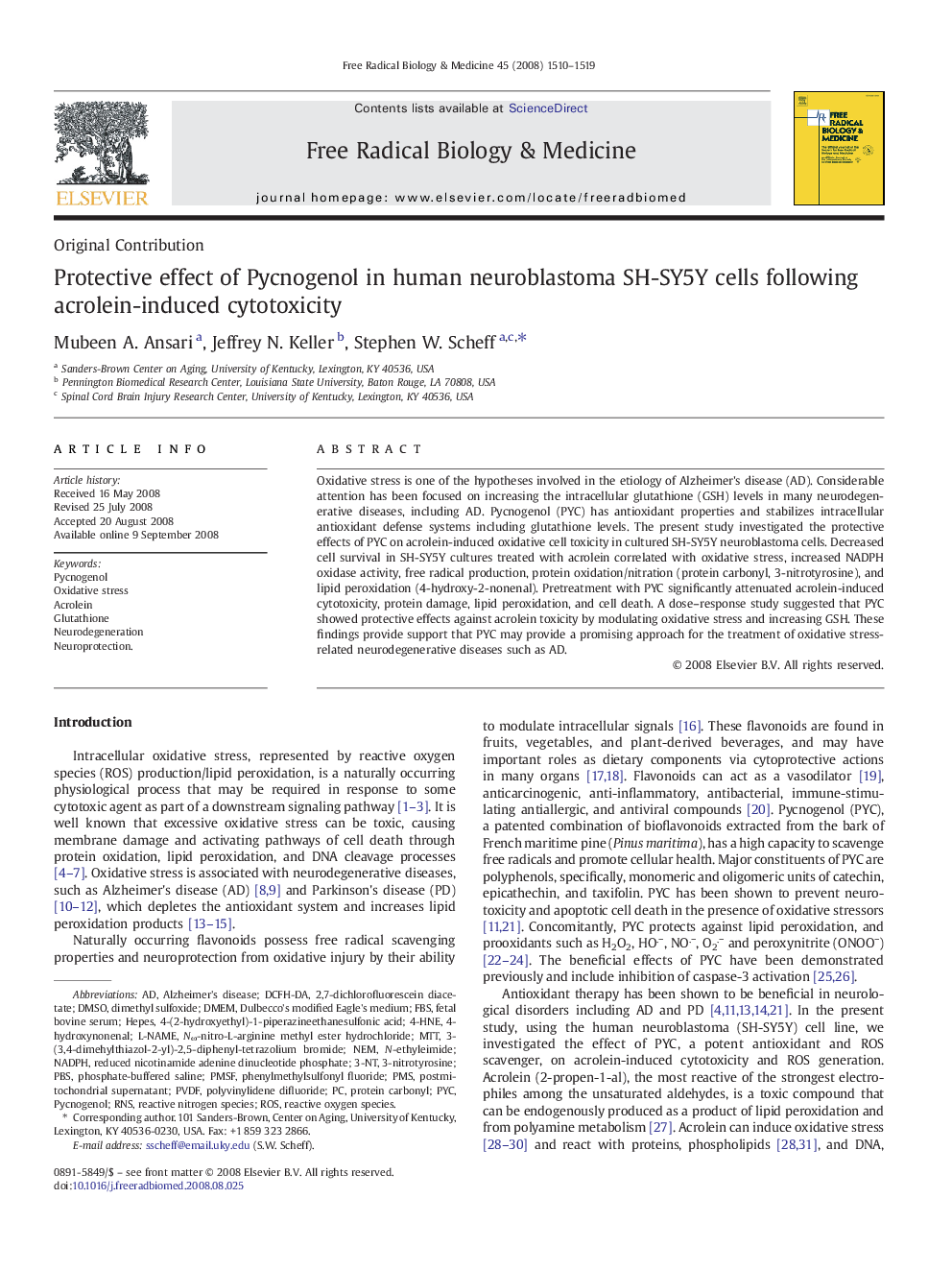| Article ID | Journal | Published Year | Pages | File Type |
|---|---|---|---|---|
| 1910570 | Free Radical Biology and Medicine | 2008 | 10 Pages |
Oxidative stress is one of the hypotheses involved in the etiology of Alzheimer's disease (AD). Considerable attention has been focused on increasing the intracellular glutathione (GSH) levels in many neurodegenerative diseases, including AD. Pycnogenol (PYC) has antioxidant properties and stabilizes intracellular antioxidant defense systems including glutathione levels. The present study investigated the protective effects of PYC on acrolein-induced oxidative cell toxicity in cultured SH-SY5Y neuroblastoma cells. Decreased cell survival in SH-SY5Y cultures treated with acrolein correlated with oxidative stress, increased NADPH oxidase activity, free radical production, protein oxidation/nitration (protein carbonyl, 3-nitrotyrosine), and lipid peroxidation (4-hydroxy-2-nonenal). Pretreatment with PYC significantly attenuated acrolein-induced cytotoxicity, protein damage, lipid peroxidation, and cell death. A dose–response study suggested that PYC showed protective effects against acrolein toxicity by modulating oxidative stress and increasing GSH. These findings provide support that PYC may provide a promising approach for the treatment of oxidative stress-related neurodegenerative diseases such as AD.
